Iraq is close to completing its financial transfers electronically.. and the US Treasury reveals its economic growth rate

According to a statement by the Prime Minister's Office, a copy of which was received by {Euphrates News}, the meeting witnessed "discussing bilateral economic relations between the two countries in various vital sectors, reviewing the government's efforts and plans for economic and financial reform, the move towards diversifying the sources of Iraqi output, enhancing development targets, and practical measures implemented in the field of combating money laundering."
The Prime Minister stressed that the government has made great strides in the financial and banking reform file, and 95% of bank transfers have been completed through the electronic platform, and less than 5% remains to be completed by the end of this year, after which the transition to the correspondent banking system will take place, in accordance with the government’s approach and its commitment to raising the capabilities of Iraqi banks, in line with international standards and meeting the needs of the thriving investment environment in Iraq.
For his part, Adeyemo praised the progress witnessed by Iraq in the field of economic and banking reforms that were achieved in record time, and the state of economic growth that reached a total of about 6%, which enhances the government's efforts in development, expressing his readiness to cooperate and work within a bilateral partnership that serves the interests of economic development.
Al-Sudani reviews with US financial official the government's efforts and plans for economic and financial reform

Prime Minister Mohammed Shia Al-Sudani reviewed with US Deputy Secretary of the Treasury, Wally Adeyemo, the government's efforts and plans for economic and financial reform.
A statement from his media office stated that Al-Sudani received, yesterday evening, Monday (Baghdad time), US Deputy Secretary of the Treasury, Wally Adeyemo, and a number of officials in the Ministry of Treasury. During the meeting, economic relations between the two countries in various vital sectors were discussed, and the government's efforts and plans for economic and financial reform were reviewed, as well as the trend towards diversifying sources of Iraqi output, enhancing development targets, and practical measures applied in the field of combating money laundering.
The Prime Minister confirmed, according to the statement, that the government has made great strides in the financial and banking reform file, and 95% of bank transfers have been completed through the electronic platform, and less than 5% will be completed by the end of this year, after which the transition to the correspondent banking system will take place, in accordance with the government's approach and commitment to raising the capabilities of Iraqi banks, in line with international standards and meeting the needs of the thriving investment environment in Iraq.
For his part, Adeyemo praised the progress witnessed by Iraq in the field of economic and banking reforms that were achieved in record time, and the state of economic growth that reached a total of about 6%, which enhances the government's efforts in development, expressing readiness to cooperate and work within a bilateral partnership that serves the interests of economic development.
Political differences have prevented the enactment of the oil and gas law for 19 years
A meeting was held on the investment law for refining crude oil No. 64 of 2007 under the auspices of the Parliamentary Oil, Gas and Natural Resources Committee (the subcommittee for following up and proposing legislation), while a member of the House of Representatives indicated that the political dispute between the federal government and the regional government still exists regarding the oil, gas and natural resources law and that during the current session of parliament this law will not be passed.

The Deputy Minister of Oil for Refining Affairs, Hamed Al-Zubaie, told Al-Masry: “During the meeting, the draft amendment to Investment Law No. 64 of 2007, which is the law of investment in refineries, was discussed, so that the law would attract investment and make investment activity in the refinery sector successful, due to its great importance to the country’s economy.”

For his part, Member of Parliament Basem Naghamish explained to Al-Masry, “The Oil, Gas and Natural Resources Committee formed a subcommittee called the Subcommittee on Legislation to follow up on legislation related to the oil sector, specifically the Ministry of Oil, adding that one of the most important of these legislations is the draft Oil and Natural Resources Law, but this law has been stalled since 2007 due to political differences between the federal government and the Kurdistan Region, and after many rounds to activate the legislation of this law, no result has been reached, expressing his belief that the political dispute over the law is still ongoing and that during the current session of parliament this law will not be passed.”

He pointed out that "there are five important projects or laws, the most important of which is the investment law for refining crude oil, which is not considered encouraging to investors, so this law must be re-reviewed in a way that is consistent with the current reality and in order to encourage investors to invest in this important private sector."
Member of Parliament Ali Shaddad, for his part, told Al-Masry: “The Iraqi provinces are greatly harmed by the absence of a law regulating the relationship between the provinces, regions and the federal government, and this is consistent with the spirit of the constitution, because there are constitutional texts (111 and 112) of the Iraqi constitution that confirm that oil belongs to the people, adding that there is an urgent need to legislate an oil and gas law, but the main and important obstacle, according to the federal Ministry of Oil, is that the negotiation process with the regional government is almost at a dead end and closed doors, as there are conditions set by the regional government that cannot be accepted, and it wants to fix the price of a barrel of oil at more than 22 thousand dinars per barrel, but mathematically, the cost of producing a barrel in all the provinces does not exceed 8 thousand dinars, indicating that the price difference will affect the country’s general budget.”

Shaddad stressed that “the lack of a unified vision for all of Iraq regarding the existence of a law such as the Oil and Gas Law will hinder many investments, indicating that all investments have been hindered by the regional government, as is the case in the oil and gas sector, in addition to smuggled oil, which was confirmed by OPEC, as well as a report issued by an American agency, that there is an indication that Iraq is one of the oil-smuggling countries and is the second largest producer in OPEC, and therefore what diminishes Iraq’s status before international organizations is the smuggling operations in the Kurdistan Region, and the regional government must hand over all oil revenues to the federal government as stated in the government program and the budget law, but unfortunately we notice that the regional government has not yet committed to all of these obligations, which is an indication that the region has not and will not commit to having an oil and gas law, hoping to move towards new options, including amending the remaining laws such as the liquidation law, the law of the system for managing the Ministry of Oil, and the law of the National Oil Company, which has not been canceled yet, in order to achieve very important successes for the federal government and all oil-producing provinces, and this requires real cooperation and partnership.” Between the legislative and executive authorities.
The crisis of not legislating the oil and gas law has been ongoing for 19 years between the federal government and the Kurdistan Regional Government, without including the draft law on the agenda of the Council of Representatives.
Baghdad does not accept the conditions of the Kurdistan Region, and the Region does not submit to Baghdad's demands either.
In February 2022, the Federal Court in Baghdad ordered the region to hand over oil produced on its territory to Baghdad, and to cancel contracts signed by the region with foreign companies. The matter went so far as to invalidate contracts with several foreign companies, especially American and Canadian ones.
The draft oil and gas law has been prepared four times since 2006, but due to the lack of agreement between the parties, especially the lack of agreement between Baghdad and Erbil, the draft law has not been included on the agenda of the Council of Representatives, and is awaiting political agreements.
The main dispute over the oil and gas law between the Kurdistan Region and the federal government revolves around the authority to produce oil and gas and how to manage the shared fields.
Masoud Barzani to a parliamentary delegation: There is an opportunity to legislate the oil and gas law
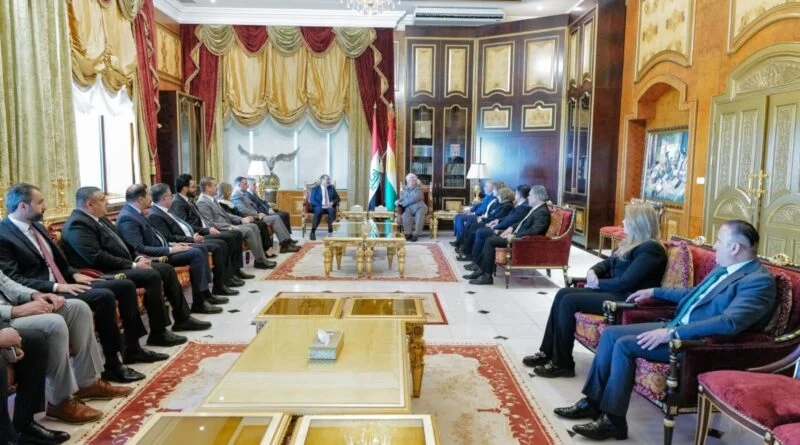
The President of the Kurdistan Democratic Party, Masoud Barzani, stressed today, Wednesday, September 25, 2024, that "the opportunity exists to legislate an oil and gas law to regulate the distribution of wealth."
During his reception of a delegation from the Parliamentary Finance Committee, according to a statement by the Parliamentary Media Department, received by "Baghdad Today", Barzani stressed "his desire to resolve the differences between the central government and the region, expressing his support for the Finance Committee's movement in this regard."
The meeting discussed, according to the statement, "the overall common situation and ways to resolve the pending issues between the central government and the Kurdistan Regional Government, in a way that establishes a new phase of cooperation, coordination and understanding based on respect for the Iraqi constitution."
Al-Atwani reviewed "the files that the Finance Committee delegation came to discuss with the Kurdistan Regional Government, most notably the implementation of the provisions of the Federal General Budget Law, the oil and national wealth file, the localization of employees' salaries, border crossings, taxes and customs, and other issues related to the financial aspect."
He stressed "the Finance Committee's constant efforts to find understandings that lead to radical solutions to the outstanding issues between the federal government and the region," stressing that "deferring the differences does not solve them, but rather increases their complexity."
Barzani praised the efforts of the Finance Committee "in terms of enacting laws, monitoring performance, and taking the initiative to end disputes."
Al-Atwani: Movement to find understandings and radical solutions between the federal government and the region

The head of the Finance Committee, Atwan Al-Atwani, revealed today, Wednesday, a movement to find understandings and radical solutions between the federal government and the region.
A statement by the Finance Committee received by the Iraqi News Agency (INA) stated that "the head of the Finance Committee, Atwan Al-Atwani, met with the accompanying delegation, the head of the Kurdistan Democratic Party, Masoud Barzani, in Erbil."
He explained that "the meeting discussed the overall political and security situation in the country, and ways to resolve the outstanding issues between the central government and the Kurdistan Regional Government, in a way that establishes a new phase of cooperation, coordination and understanding based on respecting the Iraqi constitution."
He pointed out that "Al-Atwani reviewed the files that the Finance Committee delegation came to discuss with the Kurdistan Regional Government, most notably the implementation of the provisions of the Federal General Budget Law, the oil and national wealth file, the localization of employees' salaries, border crossings, taxes and customs, and other issues related to the financial aspect."
Al-Atwani stressed "the Finance Committee's constant endeavor to find understandings that lead to radical solutions to the outstanding issues between the federal government and the region," stressing that "deferring differences does not solve them, but rather increases their complexity."
"We have seen in the federal government a genuine desire to resolve crises and begin the process of construction and development," he added, noting that "achieving prosperity for the Iraqi people requires political stability."
For his part, the head of the Kurdistan Democratic Party welcomed "the delegation of the Finance Committee, praising its great efforts in legislating laws, monitoring performance, and taking the initiative to end disputes."
Barzani stressed that "the opportunity exists to legislate an oil and gas law to regulate the distribution of wealth," stressing "his sincere desire to resolve the disputes between the central government and the region, expressing his support for the Finance Committee's movement in this regard."
A delegation from the Parliamentary Finance Committee visits Erbil to discuss several files
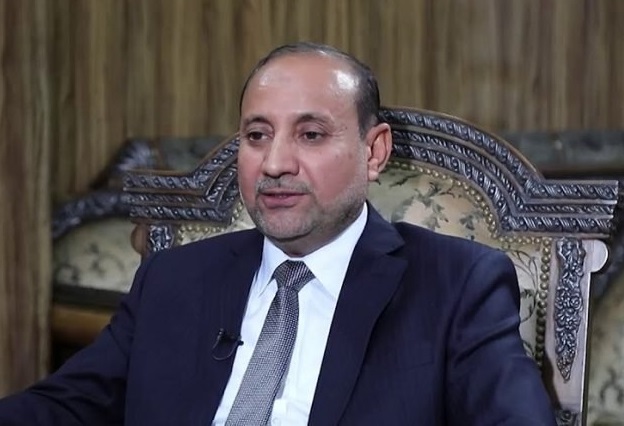
The media office of the Parliamentary Finance Committee announced that the head of the committee, Atwan Al-Atwani, headed a high-level delegation to Erbil in the Kurdistan Region, to discuss several financial files, including the localization of salaries of Kurdistan Region employees and the understanding of oil contracts with international companies.
The statement said that Al-Atwani, the committee members and its advisors are heading to the Kurdistan Region today, Tuesday, to "discuss several financial files related to the region's revenues and government expenditures, the settlement of employees' salaries, the work of customs and taxes, the automation of border crossings, and the extent of commitment to implementing the provisions of the federal budget for the years (2023-2025)."
The parliamentary delegation is scheduled to discuss "ways to address the pending issues between the central government and the Kurdistan Regional Government, in a way that ensures strengthening the state's financial resources, especially with regard to the oil export file, by finding a common space for understanding on the issue of reviewing current oil contracts with international companies, and adapting them legally to be consistent with the Iraqi constitution."
The delegation will review the "steps to implement the agreement signed recently between the federal government and the Kurdistan Regional Government, under which salaries of the region's employees were paid, and the extent of the latter's commitment to its provisions, and identify the obstacles with the aim of overcoming them to bring viewpoints closer together."
The statement said that this step comes to "push towards establishing a new phase of understandings based on rights and duties and achieving justice in the distribution of wealth."
The Chairman of the Finance Committee was quoted as expressing his hope that "this visit will achieve its technical objectives set within the framework of the Committee's permanent and continuous efforts to maximize non-oil revenues and unify the work of revenue outlets to support the state treasury."
An imminent process to change the skin of the Iraqi dinar.. Removing zeros will reveal the extent of currency manipulation
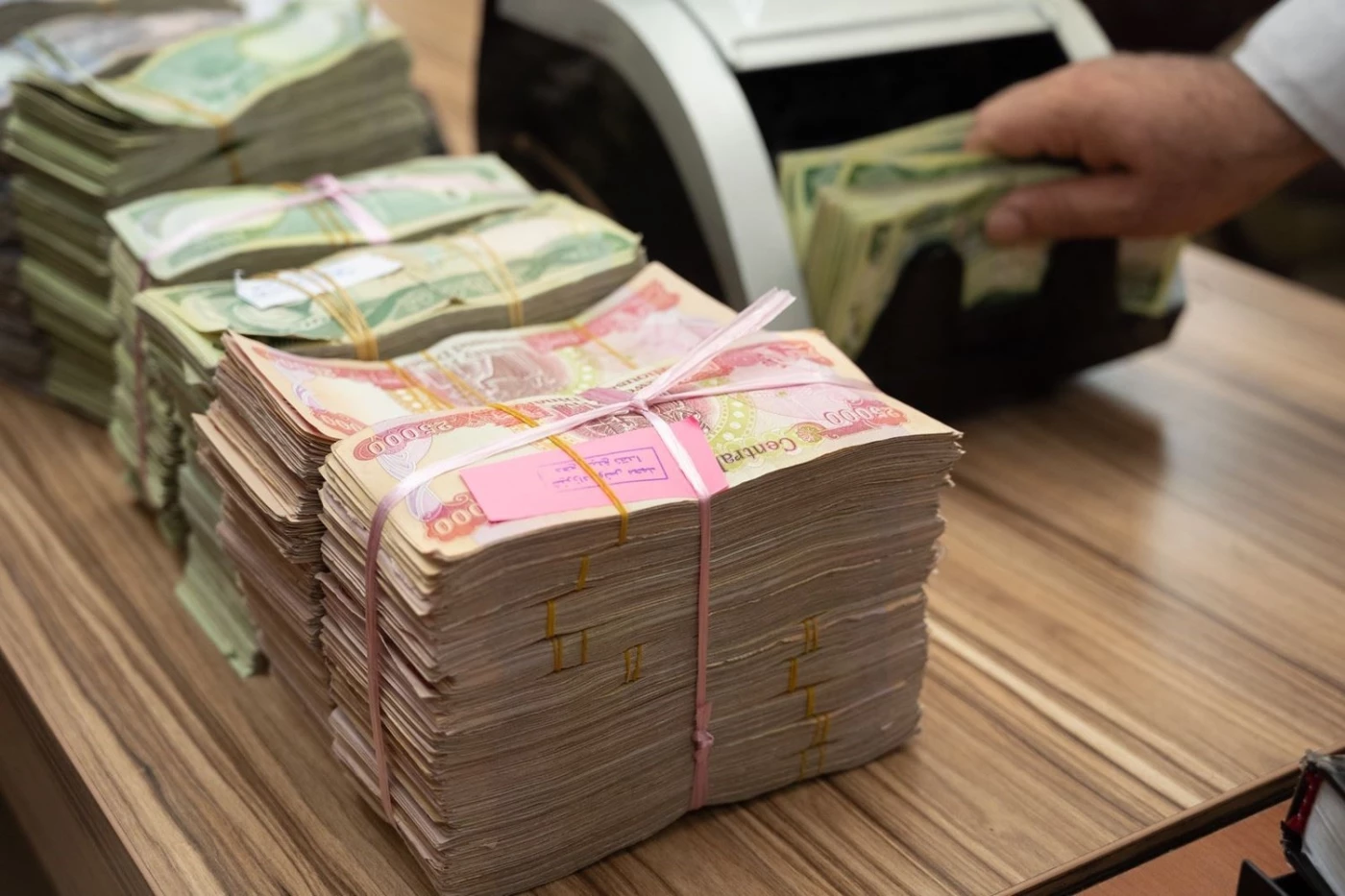
Government advisor: It must be preceded by political and economic stability
There has been talk once again about the possibility of removing zeros from the local currency, as the government is studying a bold option of changing the Iraqi dinar to its skin. Although this step carries promises of simplifying financial transactions, it raises concerns about its effects on the economy and citizens, especially in light of the inflation that the markets have been witnessing for a long time .
During the current month, the Governor of the Central Bank of Iraq, Ali Mohsen Al-Alaq, revealed new information regarding the project to delete zeros in Iraq, indicating that “the project is undergoing continuous review and study, taking into consideration the existence of an issued currency volume that has exceeded 100 trillion dinars, after it was 6 trillion in 2004. ”
Many countries take the step of removing zeros from their currency to revalue their national currency , and facilitate financial transactions by removing a certain number of zeros from the nominal value of the currency, making it appear less inflationary and more stable .
60 countries experience
“Removing zeros from the local currency is a process that has taken place in more than 60 countries over the past years,” said Mazhar Mohammed Saleh, the Prime Minister’s financial advisor. “This step comes after economic inflation occurs in countries, and therefore they resort to deleting zeros in order to keep up with prices in the markets,” he explained.
In an interview with Al-Jabal, Saleh continued, saying, “The abundance of zeros has doubled the monetary value of the currency now,” adding, “Political and economic stability must be achieved before resorting to deleting zeros.”
According to Saleh, the process of deleting zeros will facilitate the financial trading process, in addition to facilitating the calculations, and will not affect the value of the currency and all goods in the market, pointing out that this process will also allow the issue of trading small currencies in the markets, which supports the poor class of society .
The Iraqi Council of Ministers (February 7, 2023) approved the decision of the Board of Directors of the Central Bank to adjust the exchange rate of the dollar against the dinar, equivalent to 1,300 dinars per dollar, after it was 1,480 dinars per dollar, which, according to observers, caused a significant decline in the value of the Iraqi dinar in the markets .
What about the value of the dinar?
In this regard, financial expert Mahmoud Dagher told Al-Jabal, “There is a high committee formed within the Central Bank that is continuing discussions and studying the deletion of zeros from the local currency of Iraq,” indicating that “the numbers on the currency have become very large, which is the main reason behind this process.”
Dagher, a candidate for a senior position at the Central Bank, added, “The most prominent positive aspect of removing zeros from the currency is strengthening the psychological aspect of the currency by reducing the volume of transactions,” adding, “Removing zeros does not change the value of the money nor does it affect the volume of demand and the monetary mass.”
" Iraq currently has a currency issue exceeding 100 trillion dinars," said Dagher, who pointed out that "there is a negative point resulting from this process, which is the large financial costs to cover this process, and therefore the committee needs to study all economic aspects before making the final decision."
According to Dagher, changing the currency will lead to the Central Bank controlling the amount of cash liquidity outside the banking system and knowing the amount of currency available, stressing that this process will work to uncover manipulation, financial theft, and other things .
According to the circulated data, the foreign reserves of the Central Bank of Iraq cover 83.62% of the broad money supply, which is enough to cover the cost of imports for 15 months, while the global standard rate is 20 %.
Expected effects
According to the specialists’ view, the process of deleting zeros from the Iraqi local currency has many positives, as well as negatives, which can be summarized as follows :
The positives include: First: Simplifying calculations, as removing zeros will contribute to simplifying calculations and facilitating dealing with money .
Second: Improving the image of the currency, as deleting zeros may give the impression that the Iraqi currency has become more stable and stronger .
Third: Attracting investments, as this process may encourage investors to invest their money in the Iraqi economy .
As for the negatives:
First: High costs, as implementing this project requires large costs to change banknotes and coins, and update electronic payment systems .
Second: Temporary confusion, as citizens may face some confusion in the first period after implementing the decision .
Third: The reform is not sufficient, as deleting zeros is only one of many measures necessary to achieve economic stability .
Steps to strengthen the dinar
In this regard, Drid Al-Shaker Al-Anzi, an economic expert, told Al-Jabal, “The Central Bank’s attempts to improve the reality of the local currency are many, but they always come to no avail.”
The Central Bank owns about $115 billion, 140 tons of gold, in addition to $43 billion in central treasury bonds, and $36 billion accumulated in savings at the Federal Reserve deposited in (JP Morgan), but they "did not and will not affect the strength of the Iraqi currency," according to the economic expert .
Al-Anzi believes that “linking the Iraqi currency’s evaluation completely to the dollar through negotiations with the US Federal Reserve will allow for improving the strength of the Iraqi dinar,” stressing that this step will make the Iraqi dinar “stronger than the Jordanian dinar . ”
Al-Anzi points out that "the step of deleting zeros is not useful in improving the value of the Iraqi dinar compared to the countries of the region," considering that "it is a step that will only change digital transactions and has no positive value ."
Washington calls on Baghdad to reopen Ceyhan oil export pipeline
It confirms that it encourages foreign investment in the Iraqi economy.
The group of international oil companies operating in the Kurdistan Region, APICORP, called on Monday for the need to reach an official agreement between the federal government and the Kurdistan Regional Government to resolve the crisis of the closure of the Ceyhan export pipeline. In the same context, US Secretary of State Antony Blinken stressed the importance of reopening the pipeline during his meeting with Iraqi Prime Minister Mohammed Shia al-Sudani in New York, noting that this would contribute to encouraging foreign investment in the Iraqi economy.
The spokesman for the "APICOR" group stated that reopening the pipeline will generate estimated profits at about one billion dollars per month for all parties, and contribute to strengthening Iraq's efforts to achieve the goal of producing 6 million barrels per day by 2027.
Based on the press briefing on the meeting that took place between the Iraqi Prime Minister and the US Secretary of State on the sideslines of the 79th session of the United Nations General Assembly in New York, the spokesman for the US State Department, Matthew Miller, said: "Secretary of State Blinken stressed the need to reopen the oil export pipeline between Iraq and Turkey to encourage continued foreign investment in the Iraqi economy."
In a statement, the "APICOR" group, taking advantage of the presence of Prime Minister Mohammed al-Sudani in New York, called for holding official tripartite meetings between it and officials from the federal government and the Kurdistan Regional Government to expedite the re- export of oil through the Iraq-Turkey Ceyhan pipeline.
"APICOR" says that before the pipeline was closed in March 2023, the quantities of oil exported through it to global markets were estimated at 450,000 barrels per day.
“Members of the group of companies are calling for formal tripartite meetings with the Iraqi government and the Kurdistan Regional Government to expedite the resumption of exports through the Iraq-Turkey pipeline,” group spokesman Miles Caggins said in a statement. “With losses exceeding $20 billion since the pipeline was shut down, the group is seeking mutually beneficial solutions,” Caggins added.
Caggins noted that there are no technical obstacles to resuming oil exports through the pipeline, explaining that the companies are currently pumping oil for domestic consumption. He added that the Turkish government has confirmed that the pipeline is operational. Caggins
said that the Iraqi prime minister recently told Bloomberg that resuming exports could be possible by the end of this year. Caggins expressed his confidence in the prime minister's ability to resolve this issue and reach a new contract formula that satisfies all parties.
The meeting between Al-Sudani and Blinken also addressed other issues, as they stressed the importance of the strategic partnership between the United States and Iraq, and their commitment to expanding cooperation in economic development and building deeper ties between the two countries' peoples.
Miller said the two sides also discussed their shared vision for building a sustainable security partnership that contributes to regional stability, including continued discussions on the transformation of the international coalition's mission against ISIS to ensure its lasting defeat.
Miller noted that Iraq lacks sufficient infrastructure to collect and process natural gas associated with oil production, forcing it to import gas from Iran. The United States has always urged Iraq to resolve this issue to achieve independence in gas production. The US
State Department statement concluded by commending Iraq's determination to achieve self-sufficiency in energy production by 2030, stressing US support for the Prime Minister's efforts to modernize the Iraqi economy, which includes combating corruption and reforming the financial sector. Blinken also stressed the United States' commitment to supporting a stable, secure, sovereign Iraq that benefits the Iraqi people and the region.
Parliamentary Finance: Iraq is experiencing good and stable economic conditions
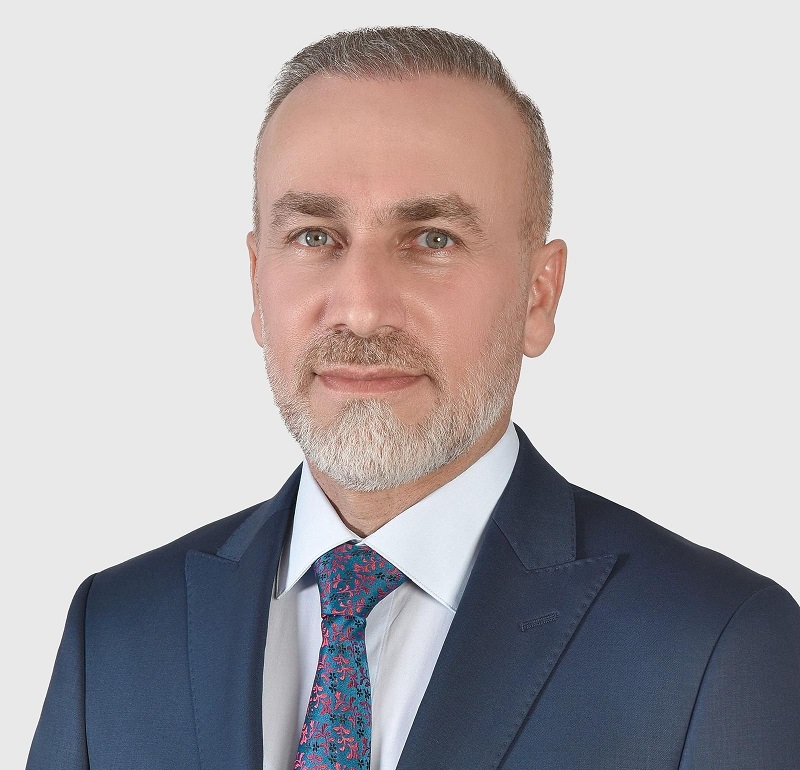
The Parliamentary Finance Committee downplayed concerns about the decline in oil prices on the economic reality, stressing that Iraq's financial and economic conditions are good, and that revenues exceed the size of concerns resulting from the possibility of a decline in global oil prices.
Member of the Parliamentary Finance Committee, MP Jamal Kojer, said in an interview with “Al-Sabah” followed by “Al-Eqtisad News”, that “oil prices have not fallen to worrying levels, and therefore we are now in a stable economic situation with a financial surplus, and therefore we cannot talk about a crisis unless oil prices fall to less than $70.”
The member of the Finance Committee stressed that "Iraq has gone through many economic and oil crises in the past, but the financial situation has remained stable and there is no fear of a current crisis."
“According to the Financial Management Law, the 2024 budget was supposed to be submitted after the middle of October, but there is still a delay in the expected schedules, which may be submitted in the first quarter of next year,” Koger continued. The MP pointed out that “the majority of the 2023 budget has already been disbursed, with 9 trillion dinars disbursed two months ago, while the 2024 budget has not yet been disbursed due to changes in governors and attempts to introduce new projects.”
The member of the Finance Committee added, "As for liquidity, the government has guaranteed the liquidity of salaries, but there is a shortage in the liquidity of projects. However, the projects that have been started will continue, including bridge projects."
Prime Minister: We will switch to the correspondent banking system to conduct 100% of foreign transfers by early 2025
Iraqi Prime Minister Mohammed Shia al-Sudani said that Iraq will switch to a correspondent banking system to conduct 100% of foreign transfers early next year.
This came during discussions he held with US Deputy Treasury Secretary Wally Adeyemo and a number of officials in the ministry regarding the government's efforts and plans for economic and financial reform, the move towards diversifying sources of Iraqi output, enhancing development targets, and practical measures implemented in the field of combating money laundering. Al-Sudani stressed that the government has made great strides in the financial and banking reform file and that 95% of bank transfers are made through the electronic platform, and the remainder will be completed by the end of this year.

The Central Bank of Iraq decides to close the Babylon Bank
The Central Bank of Iraq decided to close the Babylon Bank.
According to a document issued by the Central Bank of Iraq, addressed to the Babylon Bank, and received by "Al-Eqtisad News", it decided to "refer the bank to forced liquidation based on the provisions of Article No. 69 of Banking Law No. 94 of 2004.
He added: "Appointing Ahmed Abdul Mahdi Nehme as liquidator of your bank."
Below is the document
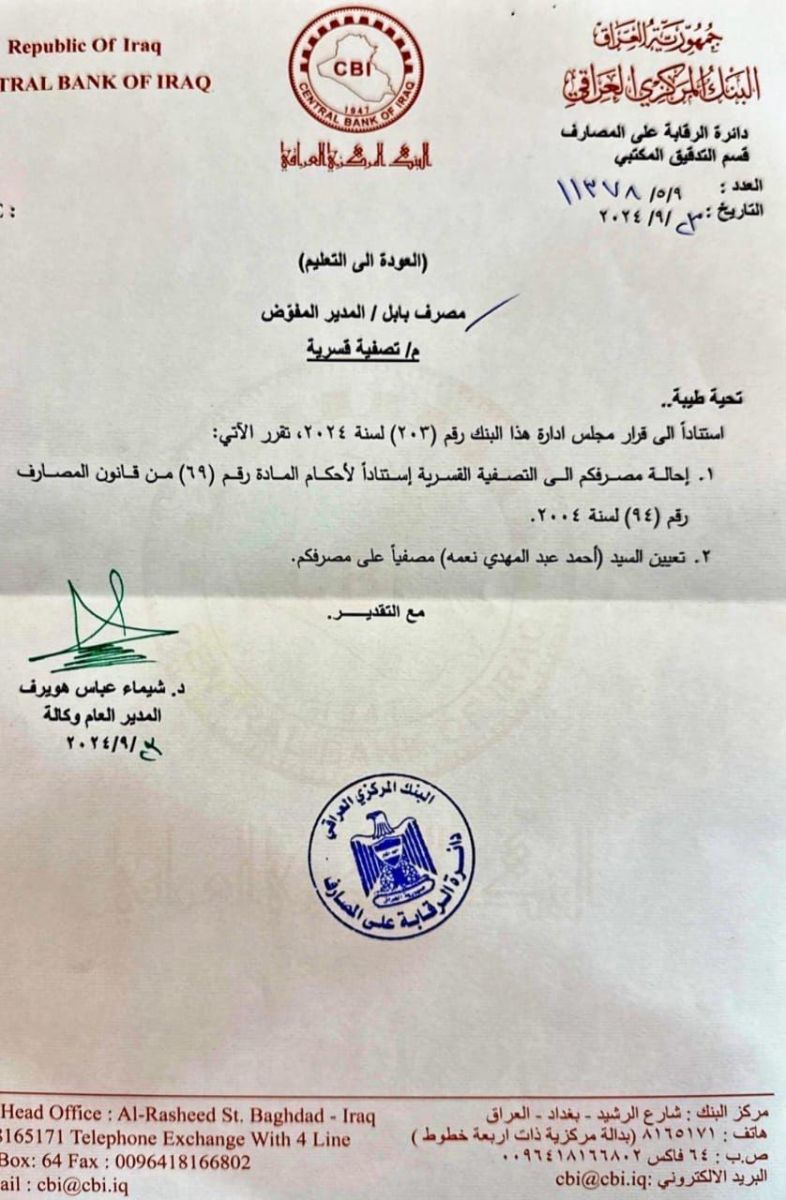
Iraq and Turkey discuss activating memoranda of understanding signed between the two countries
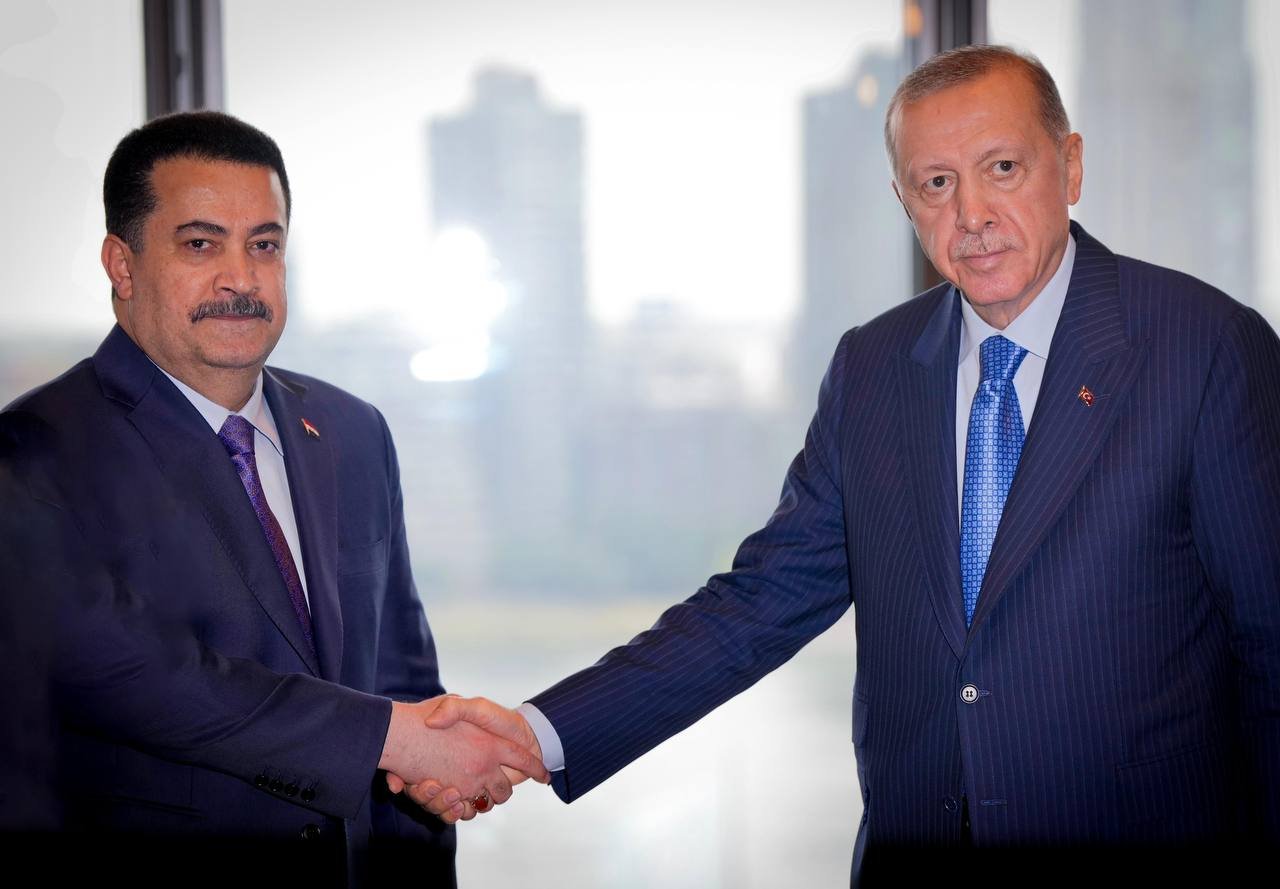
Prime Minister Mohammed Shia al-Sudani reviewed, during his meeting with Turkish President Recep Tayyip Erdogan, the results of the meetings of the latter's visit to Baghdad last April, while stressing the importance of joint work and coordination regarding the Iraq Development Road Project.
The Prime Minister's Media Office stated in a statement that "Prime Minister Mohammed Shia al-Sudani met yesterday evening, Wednesday (Baghdad time), with the President of the Republic of Turkey, Recep Tayyip Erdogan, on the sidelines of his participation in the 79th session of the United Nations General Assembly. During the meeting, bilateral relations between the two countries were discussed, and the results of the meetings of the committees formed to implement the memoranda of understanding concluded during Erdogan's visit to Baghdad last April were reviewed."
Al-Sudani explained, "The importance of joint work and coordination regarding the Iraq Road for Development project, and His Excellency's follow-up of the outcomes of the joint agreements and memoranda of understanding," referring to "the government's approach to settling pending files and resolving the situation regarding the common borders according to the mechanism by which the borders with Iran were secured."
He stressed, "Not allowing Iraqi territory to be used as a launching pad for aggression or threats to any neighboring country."
According to the statement, the two sides discussed "developments in the region and the dangers threatening it due to the Zionist entity's continued crimes against the Palestinian people in Gaza for about a year, and its current aggression against Lebanon, which threatens to lead to the outbreak of a comprehensive war in the region."
Al-Sudani pointed out "the importance of strengthening Islamic coordination within the framework of seeking to come up with a unified position that contributes to deterring aggression and stopping the genocide of the Palestinians, and the recent attacks that targeted our brotherly Lebanon."
For his part, President Erdogan expressed Turkey's support for developing the economic partnership with Iraq, in the field of combating terrorism, and contributing to development projects, in accordance with the principles of good neighborliness and good intentions in dealing between the two neighboring countries, pointing to the mutual steps in facilitating the granting of visas to citizens of the two countries, and opportunities for cooperation in the field of energy.
The Turkish President also welcomed Iraq's steps in support of stability in the region, stressing the importance of working and moving towards all Islamic countries and mobilizing positions to stop the war and aggression against Palestine and Lebanon, and preventing it from turning into a starting point for new wars in the region.
Central Bank Governor Announces Success of Digital Transformation Plan in Iraq
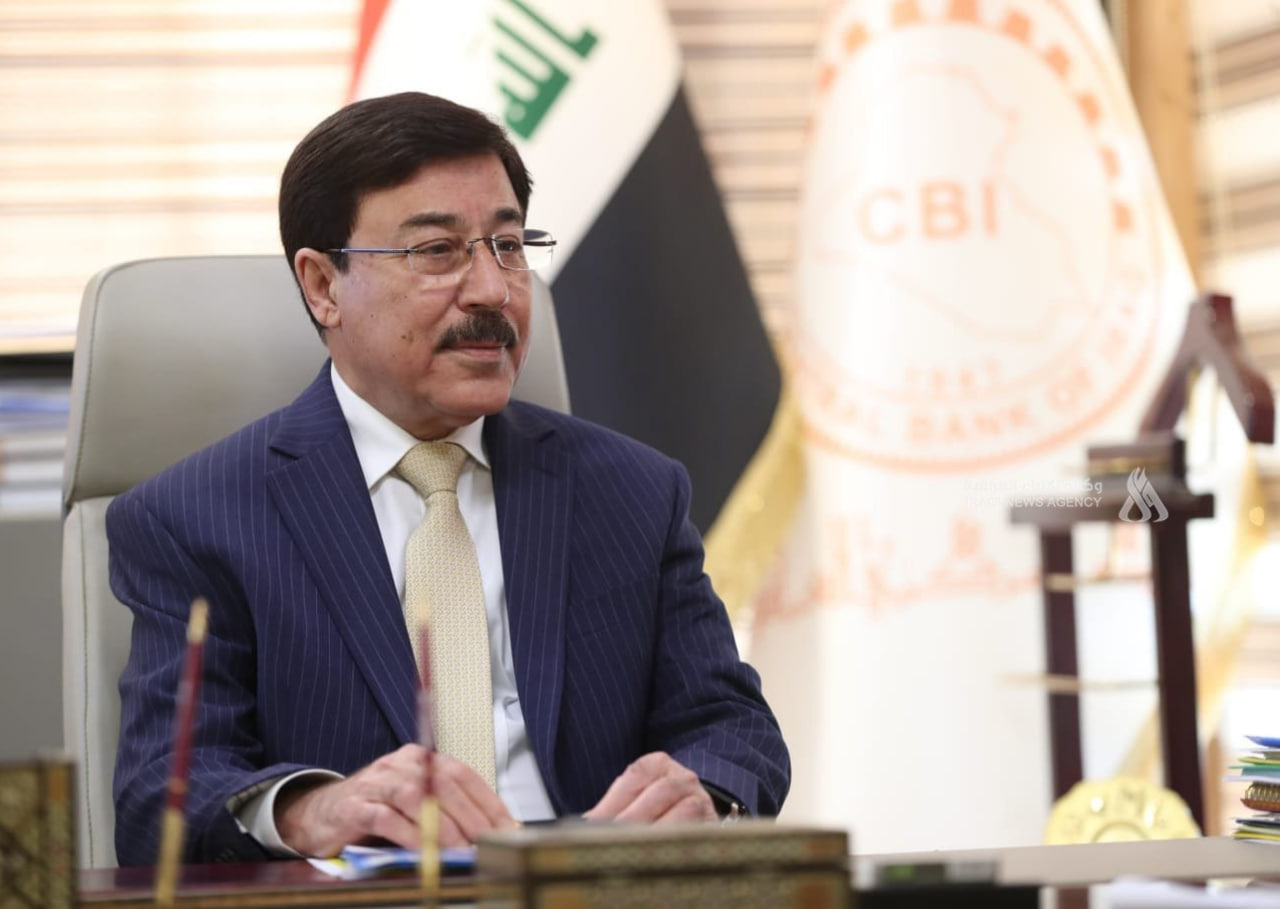
The Governor of the Central Bank, Ali Al-Alaq, announced today, Wednesday, the success of the digital transformation and electronic payment plan in Iraq, while stressing that digital banks will allow citizens to manage their operations through the phone.
Al-Alaq told the official agency, which was followed by "Al-Eqtisad News": "Through the data that was discussed in the electronic payment conference, it clearly indicates the success of the digital transformation and electronic payment plan, and the percentage rose from 20 percent a few years ago to 48.5 percent, which is double the percentage," indicating that "this percentage came during the last two years."
He added that "there is a major transformation supported by a national strategy and a serious and direct government direction by the Prime Minister and giving the issue the momentum it deserves by providing the necessary infrastructure," explaining that "Iraq now has advanced infrastructure to accommodate electronic payment tools and financial services of all kinds so that we can soon move to the transformation to digital banks in which the mobile phone will be the one leading the various operations. This facilitates services for citizens, reduces the chances of fraud, reduces the chances of corruption, and provides important data at the national level on the nature of transactions, their content, and oversight of them and the compliance achieved through the large system."
He continued: “Many requests have been submitted to the Central Bank to establish digital banks, and this is evidence that the trend is receiving the attention of investors. There are more than 60 requests that the Central Bank is currently examining carefully to be able to meet the requirements and conditions that achieve success, because we must ensure that the first step in digital banks is a successful step,” stressing “the conditions, controls and rules that digital banks operate under, but they represent a major shift in banking services, and through them, citizens will be able to manage their operations through mobile phones.”
He pointed out that "a large percentage of Iraqis own mobile phones, and this is an advantage that we must invest in to carry out this task."
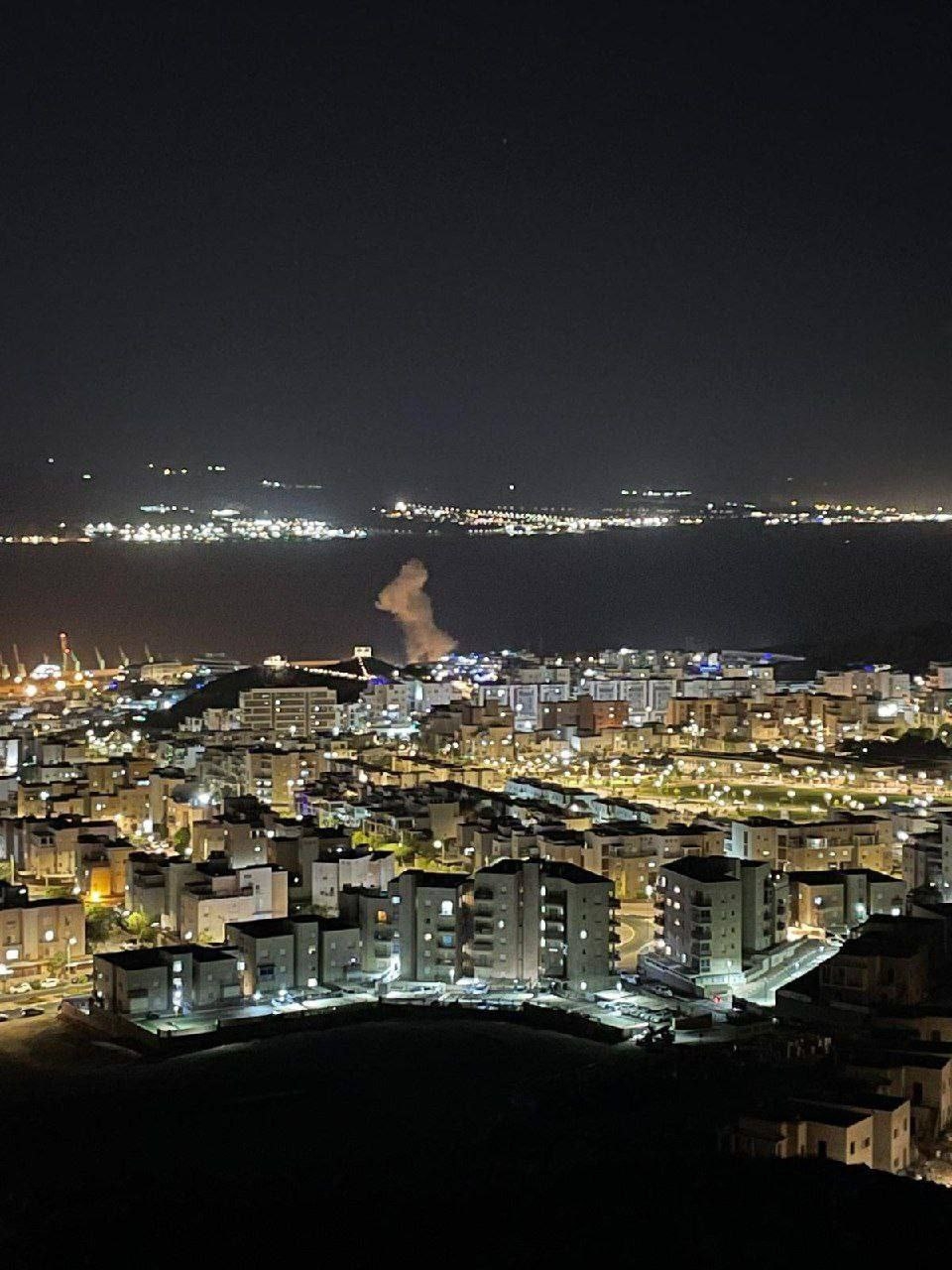
Israeli Channel 7 revealed on Wednesday (September 25, 2024) that the attack on the port of Eilat, in which two drones were used, came from the east, indicating that the army has not yet commented on the attack.
The channel said in a report translated by "Baghdad Today", "The Israeli army does not know the source of the launch of the drones that exploded in the port of Eilat, but Iraqi factions claimed responsibility for the attack."
The channel also confirmed on its website that "the Israeli army has not yet commented on the attack, merely indicating urgent moves to extinguish the fire and control it after it broke out in the Herod Hotel near the port as a result of the explosion."
It is noteworthy that Zionist media reported that the Israeli army had issued threats to target Iraq if it was proven that drones were launched from its territory.
No comments:
Post a Comment